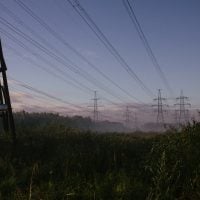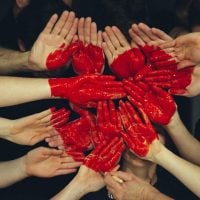Deadline: 30 May 2020
The A.M. Qattan Foundation invites Palestinian artists in Palestine and abroad and international artists from various fields in the visual and performing arts, literature and film industries to submit their applications to participate in the online project “This is Palestine.”
“This is Palestine” allows artists and writers from various creative fields to present themselves to a wide audience via social media platforms. It introduces the general public to the artistic and intellectual pursuits of artists and writers and a glimpse into their latest works. They will accompany artists on a virtual tour to their studios through a short video, visiting the space they use to create work during quarantine.
They will also explain their creative process, referring to any visual or audio materials that inspire new work.
In this video, artists will also share their opinions about the current crisis and their views on the role of art in imagining a better future by answering the following questions:
- What are the alternatives to social solidarity in such circumstances, especially regarding the cultural sector? Did the COVID-19 outbreak and the crash of the global and local economies expose the crisis of the ‘local’ in terms of its reliance on global, political and economic systems—and, consequently, the lack of alternative systems and structures for social solidarity?
- How can the Israeli colonial project be held accountable under these circumstances, in terms of its tendency to devise new forms to control and subjugate Palestinian society, whether during or after the outbreak of COVID-19? Especially in light of the geographical fragmentation of Palestinian society within various administrative, political, economic and cultural situations between the diaspora, Gaza, Jerusalem, Palestine 1948, the West Bank and refugee camps, where each case is particular in the midst of this global circumstance.
- How can they, through this crisis, devise alternative political thoughts and methodologies capable of counteracting the current patriarchal systems that resulted from the impotence and collapse of the Palestinian liberation project? How can they develop strategies capable of combating subjugation within colonial policies, consumerist economies and geographical fragmentation? What is the role of art and culture in such circumstances?
- How can they imagine the world after the current global crisis from local and international perspectives, particularly referring to historical global changes that occurred after major economic, natural or political crises? They know that post-9/11, the idea of terrorism was invented as a means of global change to facilitate reconstruction projects in Iraq, Afghanistan, the Arab world and Palestine, and to facilitate the access of global markets to these geographies. Moreover, local cultures were transformed into globalised consumerist cultures and local resources and political administration systems were controlled. Additionally, mobility between countries was restricted and the privacy of individuals violated under the guise of eliminating terrorism. This has also led to a significant increase in the state’s power to suppress freedoms, the proliferation of surveillance and deterrence systems, etc. The question is: What will the world look like post-COVID-19? What are the transformations locally and globally? What is the role of art and culture in finding alternatives that are not reactionary, but are infiltratory, sustainable and flexible in their responses to various crises, including the crisis of the Palestinian liberation project?
Video Contents
- In the first part of the video, the participant should introduce herself/himself and his/her work [3 minutes].
- In the second part, the participant should show their workspace with an explanation of the methods, tools and creative processes, with references to any visual or audio materials used or relied upon in the work. [2 minutes]
- In the third part, the participant should respond to the abovementioned questions. [3 minutes]
- In the fourth part, the participant should present a short art performance (song, composition, theatre scene, literary reading, etc.). [2 minutes]
Selection Process
- Participants submit their applications by filling out the form and uploading their video online.
- A selection committee from AMQF will review submitted applications to ensure the eligibility of the artists.
- Selected artists will be contacted within one week of receiving the application to sign the contract and receive logistical follow-up to begin preparing and publishing the video.
- Ineligible artists will be contacted within one week of receiving the application.
- Submitted videos will be edited, translated and posted on social media websites.
- Participating artists are required to post the final videos on their social media profiles.
For more information, visit http://qattanfoundation.org/en/This-is-Palestine









































